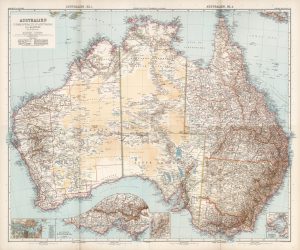When a policy is built on trying to make examples out of people, it cannot help but be pushed to absurdities. The government will always claim that there is a larger goal to be achieved and so any action in service of this objective will be considered justified. Australia’s approach to asylum seekers attempting to reach Australia by boat is driven by this perspective. If the government is brutal enough to those who have made the journey, the thinking goes, then this will dissuade anyone else from considering it.
The policy relies on dehumanizing asylum seekers, to have the public see them not as desperate people in need of help but as nefarious villains attempting to take advantage of the country’s good nature and generosity. Yet when the public comes to know individual asylum seekers, to see them as decent people in need of assistance, then the government’s approach starts to disintegrate, with each action taken maintain the policy revealing the deep inhumanity that it is predicated on.
This is where the Australian government currently finds itself with regard to a family of Sri Lankan Tamil asylum seekers, the Murugappans. Nades and Priya arrived in Australia just prior to a 2013 shift in policy that sent all informal arrivals to offshore detention centers in Nauru or Manus Island in Papua New Guinea, and prior to the policy of refusing all maritime arrivals any chance of settling in Australia. This afforded the couple the ability to live in Australia while their applications for refugee status were being processed.
The couple settled in the rural Queensland town of Biloela where they were able to build a life, with Nades working in the local abattoir and Priya making meals for the town’s hospital staff. The couple had two children in Biloela, Kopika and Tharnicaa. The family were loved and valued by the people of Biloela, happy to have a new family settle in the area when so many rural towns are seeing their populations decline.
Yet in 2018, after four years living in Biloela, the Australian government decided that Nades and Priya did not qualify for refugee status, and that they had exhausted all their appeal options. The government’s assessment of the situation in Sri Lanka was that a decade on from the formal end of the country’s civil war, the environment for Tamils in the country is now secure. This has been a contentious assessment, given that the United Nations Human Rights Office published a report earlier this year that warned “Sri Lanka’s current trajectory sets the scene for the recurrence of the policies and practices that gave rise to grave human rights violations.”
The four members of the Mugugappan family were transported to a detention center in Melbourne, with the intention of deporting them to Sri Lanka. Dramatically, the family were placed on a flight to Sri Lanka in August 2019 only for the plane to land in Darwin after an injunction was granted on behalf of Tharnicaa, who had failed to be assessed for a protection visa. This led to the family being placed in detention on Christmas Island, an Australian outpost in the Indian Ocean that had previously served as a way the government could avoid Australian laws, until Nauru and Manus Island were deemed to serve this purpose better.
The family was held on Christmas Island until only recently, when Tharnicaa developed pneumonia and a blood infection that required specialist attention on the mainland. This led to the family first being placed in community detention in Perth, and subsequently being afforded three month bridging visas, allowing Nades and Priya to work, and Kopika to attend school.
Over the past few years not only the community in Biloela, but the wider Australian community has come to empathize with this family and rally considerable support for them to be allowed to permanently settle in Australia. The opposition Labor Party sensed a change in the political winds and now sees advocating on behalf of the family as not only the right thing to do, but politically astute.
So too has Barnaby Joyce, a former National Party leader, who last week said that “Tharnicaa and Kopika were born in Australia. Maybe if their names were Jane and Sally… we’d think twice about sending them back to another country which they’re not from.” This week Joyce launched a traditional Australian party coup to return to the leadership of the National Party, and as a result the position of deputy prime minister. The post gives his voice on this issue considerable weight within the government.
Australia’s current hardline policies toward asylum seekers were initially designed by the Liberal-National Coalition to win the 2001 election. Their success in doing so created a political culture that has led to the further escalation of these policies, driven by a belief that the electoral rewards are worth the human — and reputational — costs. Yet with the Murugappan family this culture has shifted. The more the Australian government has tried to enforce its policies, the more sympathy the family has gained from the public, and the less politically advantageous these policies have become.
The problem now is that there are currently 18,000 people who have had their claims of asylum accepted and are currently on temporary visas in Australia. Issuing the Murugappan family permanent visas would be unfair to these people who have had less high-profile experiences. But this is a mess the Australian government created for itself, by turning a maritime arrival problem into a resettlement problem, with little idea of how to create a workable balance between the two.

































